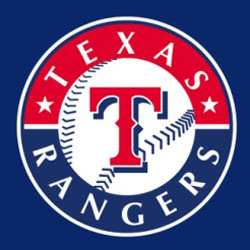And it's pray, pray, pray for the home team
The idea for a baseball service began as a joke but evolved into something more serious.

By Mark W. Stamm
The idea for a baseball service at SMU's Perkins Chapel began as a joke, although joking and creativity are close spiritual and intellectual cousins.
At the first worship committee meeting for the academic year, held in August 2007, I laid out the chapel dates for the entire term. I listed "First Service in Baseball Season" for April 2, opening day. It was a joke but perhaps also a secret fantasy.
When I gathered my worship committee, I said, "Look, friends, it was fun to joke about a baseball service, but now it's time to get serious." At that, several of my students responded, "Oh no, Dr. Stamm, you have to see if you can give thanks for baseball," thus – by requiring a theological justification for my proposal – catching me with my own teaching.
So we planned the service. While doing so was one of the most difficult liturgical exercises that I have attempted, the product was deeply satisfying. It was a serious offering to God, as well as a direct response to my worship committee's dare.
To give you a feel for the spirit of the service, I invite you first to read the Baseball Berakah that I composed for it. In the Judaic tradition, a Berakah is a kind of benediction. I chose this form because it is capable of expressing thanksgiving and delight, with God's goodness as the only justification necessary. Here follows a portion of the Baseball Berakah:
Blessed are you, Lord our God, giver of all good gifts.
In your goodness, you created human beings in your image and called us good. ...
You commanded us to rest ... and to play.
You put playfulness in the hearts of your creatures.
Dogs run. Dolphins jump. Birds sing. Children run, jump, and sing.
And you bid us participate in that joy.
In time, baseball developed in the midst of that play, invented by children, and by adults who wanted to keep on playing.
It doesn't really do much that's particularly useful.
But, along with chocolate, swing sets, symphony orchestras, rose gardens and blueberry pancakes, not to mention the Final Four and bright red bow ties, we are grateful for this gift.
(Sung) Let all things their Creator Bless: Alleluia! Alleluia! Alleluia!

Most of our deepest joys come in the crisp and rhythmic slap of ball on leather, the feel of a solid hit or watching an excellent play. But for this year, we can add to our list, "And let us all now give thanks for the inspiring performance of the Texas Rangers."
By discussing baseball, we also gave people an opportunity to talk about relationships, some with people no longer living. When we ask, "Why do you play? Why do you go to the ballpark?" people inevitably talk about going to the ballpark with others – with friends, spouses, parents, grandparents and children. It matters that we play and pray – that we do these things with other people matters even more.
This essay by Mark W. Stamm is from "Pray Ball? Reflections on the Serious Liturgical Challenge of Giving Thanks for Baseball," presented this summer at the Cooperstown Symposium on Baseball and American Culture.